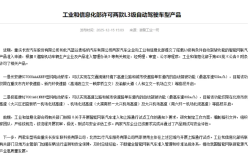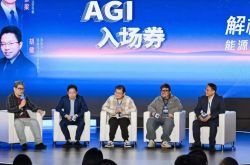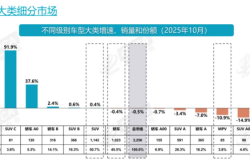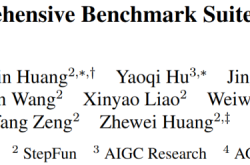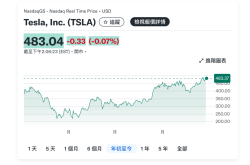New Brand, New Logo, Can Audi Succeed in Electrification?
![]() 11/14 2024
11/14 2024
![]() 576
576
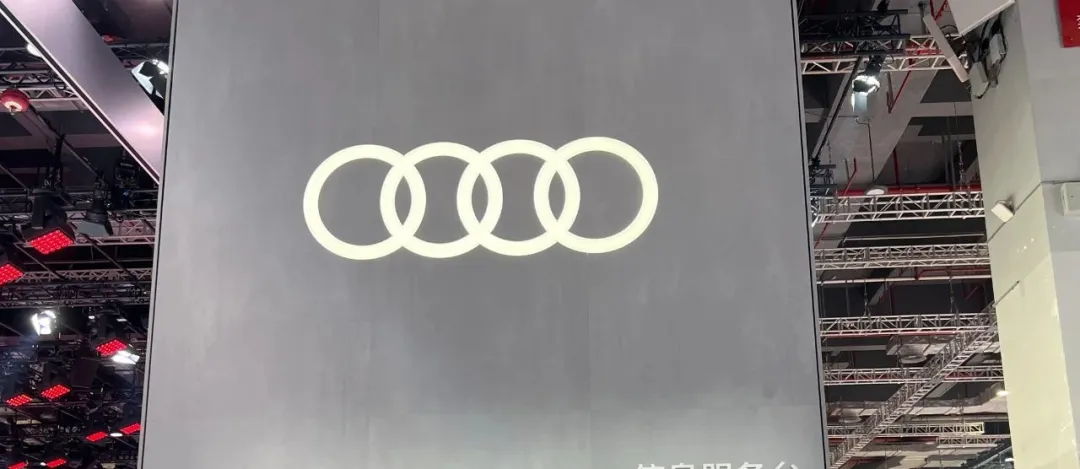
Image source: Duge
A few days ago, Audi unveiled its new luxury electric brand, AUDI, with a new logo "AUDI" instead of the classic four-ring emblem. Simultaneously, Audi also introduced its first mass-production concept car, AUDI E Concept.
It is reported that the AUDI brand is a collaboration between Audi and SAIC, focusing on the pure electric vehicle market in mainland China. Audi is responsible for traditional strengths such as exterior design, chassis, and mechanical quality, while SAIC handles research and development in electronic and electrical architecture, intelligent cockpits, and autonomous driving.
In May this year, Audi signed a cooperation agreement with SAIC Motor and SAIC Volkswagen to further strengthen local cooperation. Audi will jointly develop a new platform exclusively for the Chinese market with SAIC, the "Advanced Digitized Platform," and build a new generation of high-end intelligent connected vehicle models based on this platform. The first batch of models will include three pure electric vehicles covering the B-segment and C-segment markets, with the first model to be launched in 2025.
By partnering with SAIC and launching a new luxury electric vehicle brand, can Audi regain ground in China?
1
BBA at the Bottom●
Audi is currently facing certain sales difficulties in China.
In the first three quarters of this year, Audi Group delivered approximately 1.2514 million vehicles, a decrease of 10.9% year-on-year. Of these, 477,200 vehicles were delivered to China, a decrease of 8.5% year-on-year. The decline in sales has also impacted performance. Audi's revenue for the first three quarters totaled 46.3 billion euros, a decrease of 8.2% year-on-year; operating profit was approximately 2.088 billion euros, a decrease of 54.6% year-on-year.
In fact, Audi's sales decline has been evident for some time. In 1988, FAW and Volkswagen signed a technology cooperation agreement to produce the Audi 100 through licensed assembly. Since then, Audi became one of the first multinational luxury automakers to enter China and a leader in the luxury car market, consistently outperforming BMW and Mercedes-Benz in sales.
However, in 2019, Audi fell to the bottom of the BBA rankings. That year, Audi sold 690,100 vehicles in the Chinese market, an increase of 4.1% year-on-year; BMW delivered 723,700 BMW and MINI vehicles, an increase of 13.1% year-on-year, becoming the top-selling premium automaker in China; Mercedes-Benz delivered 702,100 vehicles, an increase of only 4% year-on-year, but still outperformed Audi in sales.
Entering 2023, Audi has yet to reclaim its top position. Audi delivered over 729,000 vehicles, an increase of 13.5% year-on-year; BMW Group delivered 824,900 BMW and MINI vehicles, an increase of 4.2% year-on-year; Mercedes-Benz delivered 765,000 vehicles.
This gap also stems from differences in electrification efforts. In 2023, Audi sold only 31,000 units of its pure electric e-tron series, accounting for 4.2% of total sales; in the same period, BMW delivered nearly 100,000 pure electric vehicles in the Chinese market, accounting for over 12% of total sales.
Under China's new energy wave, Audi's relatively low sales proportion of pure electric vehicles also reflects a certain development bottleneck. Oliver Blume, CEO of Volkswagen Group, has stated that the Audi brand has great potential in electrification, but it has not been translated into concrete products in recent years. Additionally, he believes Audi faces software issues, leading to delays in the launch of its electric products. Audi's current lineup is in an awkward situation: lagging behind both competitors and its own capabilities.
Therefore, Audi must also accelerate its electrification transformation in China.
2
Slow Electrification●
In 2018, Audi launched the Audi e-tron, its first mass-produced pure electric vehicle based on the MLB evo platform. Records show that the MLB evo platform was originally designed for gasoline vehicles, including SUV models from Lamborghini, Bentley, and Porsche, as well as medium and large vehicles from Audi. Therefore, the Audi e-tron can be considered a gasoline-to-electric conversion product.
In November 2019, the Audi e-tron and the Q2L e-tron, designed specifically for the Chinese market, entered the Chinese market. At that time, the subsidized price of the e-tron ranged from 692,800 to 828,600 yuan. However, due to its gasoline-to-electric conversion, the small battery capacity resulted in a practical range of only over 300 kilometers. Delivery was delayed by several months due to software issues and later recalled due to battery pack sealing problems.
The Audi e-tron, which lacked a price advantage, soon offered a 15% discount to boost sales.
The Q2L e-tron, with a subsidized price range of 226,800 to 237,300 yuan, had a range of only 265 kilometers. Even with fast charging, it took over 50 minutes to charge to 80%. At that time, domestic electric vehicles already had a range of over 400 kilometers and lacked an advantage in configuration.
As a result, Audi's electric vehicle debut in the Chinese market was a setback.
Therefore, Audi further accelerated its electrification transformation and announced the "Audi China Progress 2030 Strategy" in 2021, focusing on three core areas: advancing electrification, building a digital ecosystem including charging and autonomous driving, and measuring company performance against ESG standards to promote sustainable growth.
On April 11 of the same year, the locally produced Audi e-tron was officially launched, produced in CKD (Completely Knocked Down) form at the FAW-Volkswagen Audi plant. It is equipped with a ternary lithium-ion battery from CATL, extending the range to 500 kilometers, and is over 100,000 yuan cheaper than the imported version.
In 2023, it was rumored that FAW Audi offered a 50% discount on locally produced e-trons to internal employees for all three models in the series, with the promotion ending on December 31, 2023. In addition to the price discount, a charging pile would also be gifted.
Despite being a 50% discount for employees, it inevitably affected the outside perception of the locally produced Audi e-tron.
In addition to the e-tron, Audi has successively introduced multiple models in China. The official website shows that Audi currently sells new energy vehicles in China, including the Q2L e-tron, A6L e-tron, Q4 e-tron, e-tron, and Q5L e-tron. However, in 2023, the combined sales of e-tron series models were only 31,000 units, clearly underperforming.
3
Accelerating Transformation●
As early as 2021, Audi announced that it would stop developing gasoline or diesel engines and completely shift to the research and production of electric vehicles in 10-15 years.
In 2023, Audi announced its future production plans. Starting from 2026, Audi will only launch pure electric vehicles globally. By 2033, it will gradually cease production of internal combustion engine models, with all Audi's own production bases worldwide dedicated to electric vehicle production.
That year, Audi China President Wen Zeyue stated, "Starting this year, Audi will launch the largest product offensive in its history globally, which is also the most crucial offensive for future transformation." Over the next three years, Audi will launch 20 models globally, 10 of which will be pure electric vehicles.
In addition to the new development plan, Audi has also been frequently changing its management.
Records show that on September 1, 2023, Audi announced that Gernot Döllner, Vice President of Product and Group Strategy at Volkswagen Group, would succeed Markus Duesmann as the new CEO of Audi. In January of this year, Audi announced that Johannes Roscheck would become President of Audi China, overseeing Audi's operations in China, effective April 1. The current President of Audi China, Wen Zeyue, will return to the headquarters of Volkswagen Group in Germany after completing his two-year term.
Changes have also occurred in Audi's joint ventures. In 2018, Audi initiated a dual joint venture partner strategy in China, where previously it only had FAW Audi as its joint venture in China. In March 2021, Audi, the Volkswagen Group, and FAW jointly announced the establishment of FAW Audi New Energy Automobile; in April of the same year, SAIC Audi was officially established.
In June 2023, Audi's first dedicated production base for pure electric vehicles in China, the new PPE factory of FAW Audi, officially commenced construction in Changchun with a total investment of approximately 35 billion yuan and an annual production capacity of 150,000 vehicles. The factory will commence operations by the end of 2024, with the Audi Q6 e-tron and A6 e-tron being the first models to roll off the production line.
Records show that SAIC Audi focuses on new energy vehicle development, adopting a direct sales model and moving closer to the new brand model. FAW Audi focuses on fuel vehicles, adopting a dealership model. However, with the upcoming commissioning of FAW Audi New Energy's new factory, FAW will also increase its investment in new energy vehicle development for Audi.
Meanwhile, SAIC Audi is also undergoing personnel changes. In March 2023, Yang Siyao succeeded Jia Mingdi as General Manager of SAIC Audi's Marketing Business. In September of this year, it was reported that Xie Shiqi, the former Executive Deputy Director of Marketing Business for SAIC Volkswagen-Volkswagen Brand, would become General Manager of SAIC Audi's Marketing Business Unit.
Now, Audi's new electric vehicle models in collaboration with SAIC Group have made new progress. It is evident that SAIC Audi is also accelerating the development of electrification.
It is worth mentioning that the Audi A5L will be produced by both FAW Audi and SAIC Audi. FAW Audi A5L has chosen Huawei's Kunlun ADS for its intelligent driving system, but the intelligent driving solution for SAIC Audi A5L has not yet been determined. However, SAIC Group has invested in the autonomous driving company Momenta, and the Momenta intelligent driving solution has already been mass-produced and applied to the IM models. Therefore, some believe that SAIC Audi A5L may partner with Momenta.
In the opinion of "Car Visibility," as a traditional luxury automaker, Audi faces a situation where its sales in the Chinese market will stagnate or decline under the slow pace of electrification transformation and the rapid development of Chinese automakers. Only by accelerating the electrification transformation can Audi maintain its market influence as a luxury car brand.
Source | Car Visibility (CarVisibility)
Disclaimer
This account is dedicated to sharing more automotive knowledge for readers' reference and exchange, and does not constitute investment advice for any individual or institution.
Please do not make investment decisions based solely on information in articles from this public account. Any direct or indirect losses resulting from improper use of relevant information shall be borne solely by the user.
This article is an original work of Car Visibility and its copyright belongs to Car Visibility. For reprints, please contact us for authorization.


